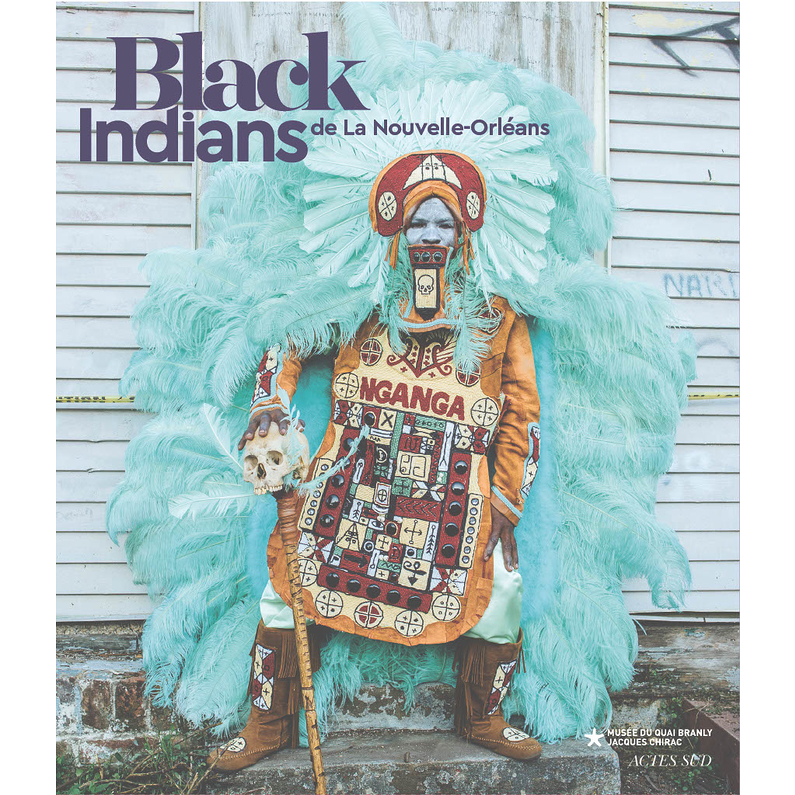Description
The African-American carnival tradition of New Orleans, born in the 19th century on the fringes of the official carnival largely reserved for whites, is multiple, dense, and exceptionally creative. It is part of the long time of the societies of New Orleans, Louisiana and, more distantly, of New France.
By naming themselves "Black Indians" to celebrate Mardi Gras, African-Americans from the city's modest neighborhoods wish to express values of justice and equality with Native Americans, sharing with them the same past of oppression and racism.
Reinventing themselves as Big Chief, Big Queen, or even Wild Man, they roam the streets of their neighborhoods in the hope of confronting other "tribes". According to extremely codified uses, their music, their war songs, their dances and their costumes obviously continue to fascinate the inhabitants, the curious and the ethnologists of the whole world.
Characteristics
Coédition musée du quai Branly - Jacques Chirac/Actes Sud
French language
24×28cm
224 pages
180 illustrations
- Publication date
- 28/09/2022
- Categories
- Bookshop & Media, Quai Branly's Editions, Exhibition & catalogues, Exposition Black Indians de la Nouvelle-Orléans

